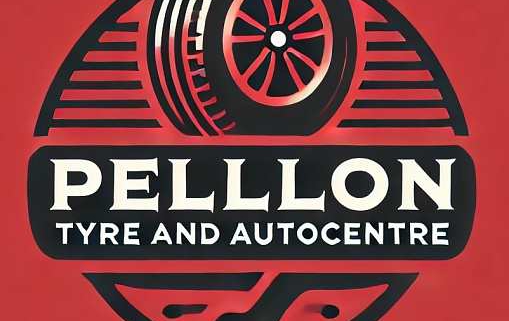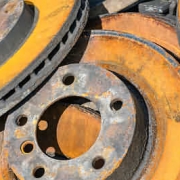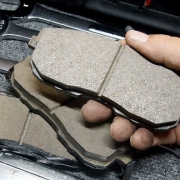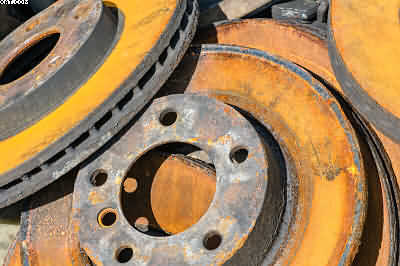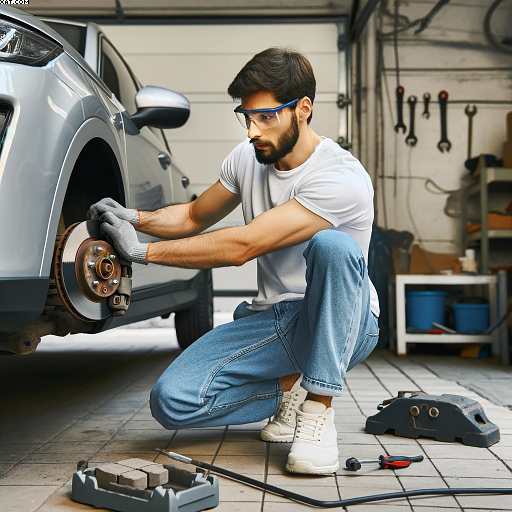What causes Brake Discs to Wear out
Table of Contents
What causes Brake Discs to Wear out
What causes Brake Discs to Wear out
Unfortunately, I remember the days before brake discs were fitted to our cars. In fact, brake shoes were the norm for most regular car models. Indeed, my first encounter with disc brakes was on a Jaguar belonging to the son of a wealthy millowner. We used to service his vehicles, and the Jaguar was one of them. However, as an apprentice, I never got to touch the car. But I remember being shown how the disc system worked.
Hence, It was explained to me that brake discs are subjected to constant friction and heat during the braking process. However, over time, the repeated exposure to these elements can cause the discs to wear out. In addition, other factors that can contribute to brake disc wear include:
Driving Style: What causes Brake Discs to Wear out
Accordingly, aggressive driving habits such as frequent hard braking and riding the brakes can accelerate the wear of the brake discs. (Boy racers come to mind.)
Driving Conditions
Driving in stop-and-go traffic, on mountainous terrain, or on rough roads can cause excessive wear on the brake discs.
Poor Quality pads: What causes Brake Discs to Wear out
So this along with corrosion is the most common cause for disc wear. Low-quality brake pads can cause uneven wear on the brake discs, leading to premature failure.
Corrosion
Exposure to moisture, salt, and other environmental elements can cause corrosion on the brake discs, leading to accelerated wear. Especially the rear discs, that dont get as much use as the front discs.
How Can You Tell if Your Brake Discs are Worn Out?
There are several signs that can indicate worn-out brake discs, including:
Vibration; What causes Brake Discs to Wear out
So, when driving along If you feel a vibration in the steering wheel or brake pedal when you apply the brakes, it may be due to worn-out brake discs. Many of my customers think this is something to do with wheel balance. But it is a different type of vibration caused by wheel balance.
Squeaking or Grinding Noise
Yet another common cause is when the driver can hear, squeaking or grinding noises when braking. Of course, that can indicate that the brake pads have worn down to the metal and are damaging the brake discs.
Reduced Braking Performance
So, when the discs are subjected to hours of heating then the metal changes construction and softens. When this occurs it takes longer to stop your vehicle than usual or the brakes feel less responsive. Consequently, it may also be due to worn-out brake discs.
- Visual Inspection
You can visually inspect the brake discs for signs of wear. If the disc has deep grooves, cracks, or a blue colour, it may be due to excessive heat and wear.
- What Should You Do If Your Brake Discs are Worn Out?
If you suspect that your brake discs are worn out, it is essential to have them inspected by a qualified mechanic. Here are some steps you can take:
- Replace the Brake Discs; What causes Brake Discs to Wear out
If the brake discs are worn beyond their service limit, they must be replaced. It is essential to replace both brake discs on the same axle to ensure proper braking performance.
- Replace the Brake Pads
Most commonly, then worn-out brake pads can cause excessive wear on the brake discs. Therefore, it is recommended to replace the brake pads at the same time as the brake discs.
- Check the Brake System Components
It is essential to have the entire brake system inspected for wear and damage. Components such as brake callipers, brake hoses, and brake fluid should be inspected and replaced if necessary.
What can I do ? Upgrade to High-Quality Brake Components
If you frequently drive in challenging conditions or want to improve braking performance. Consider upgrading to higher-quality brake components such as ceramic brake pads or drilled and slotted brake discs.
- How Can You Prevent Brake Disc Wear?
Regular maintenance and driving habits can help prolong the life of your brake discs. Here are some tips:
2. Avoid Aggressive Driving Habits
Frequent hard braking and riding the brakes can accelerate the wear of the brake discs.
3. Drive Carefully on Rough Roads
Driving on rough or unpaved roads can cause excessive wear on the brake discs.
4.Use High-Quality Brake Components
High-quality brake pads and discs can last longer and provide better safety risk for your family and friends.
